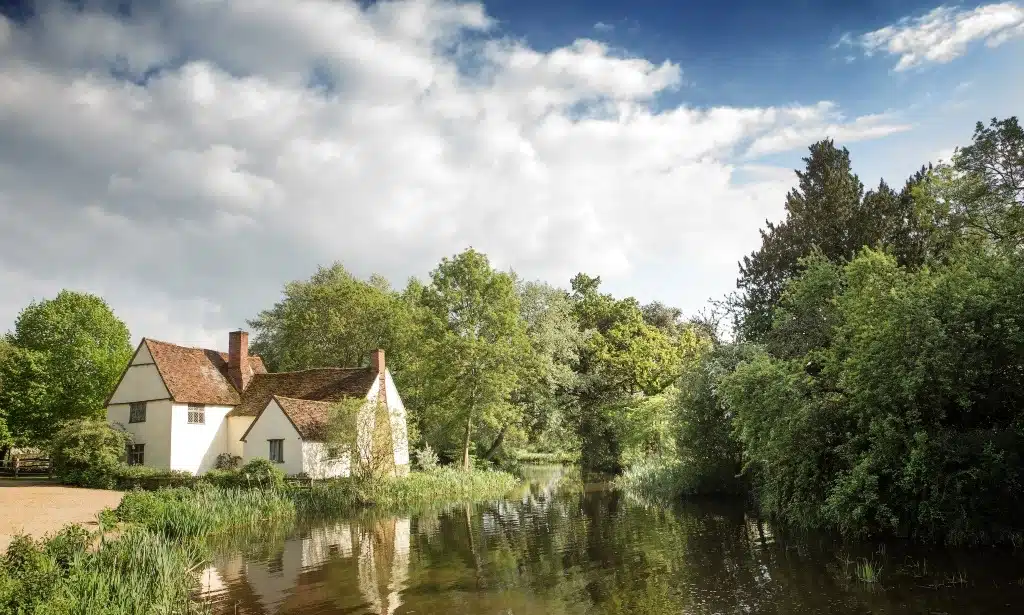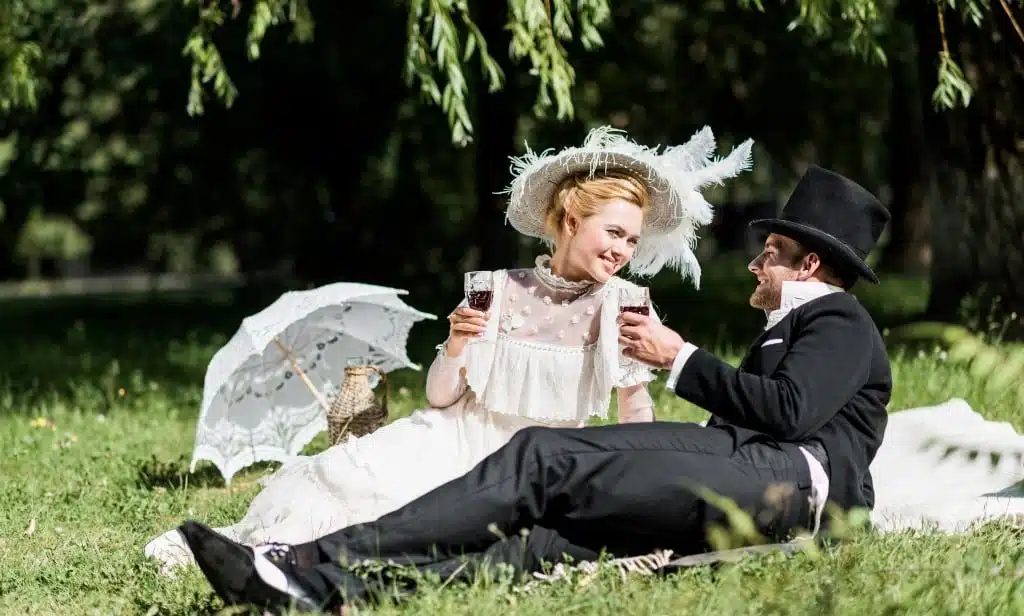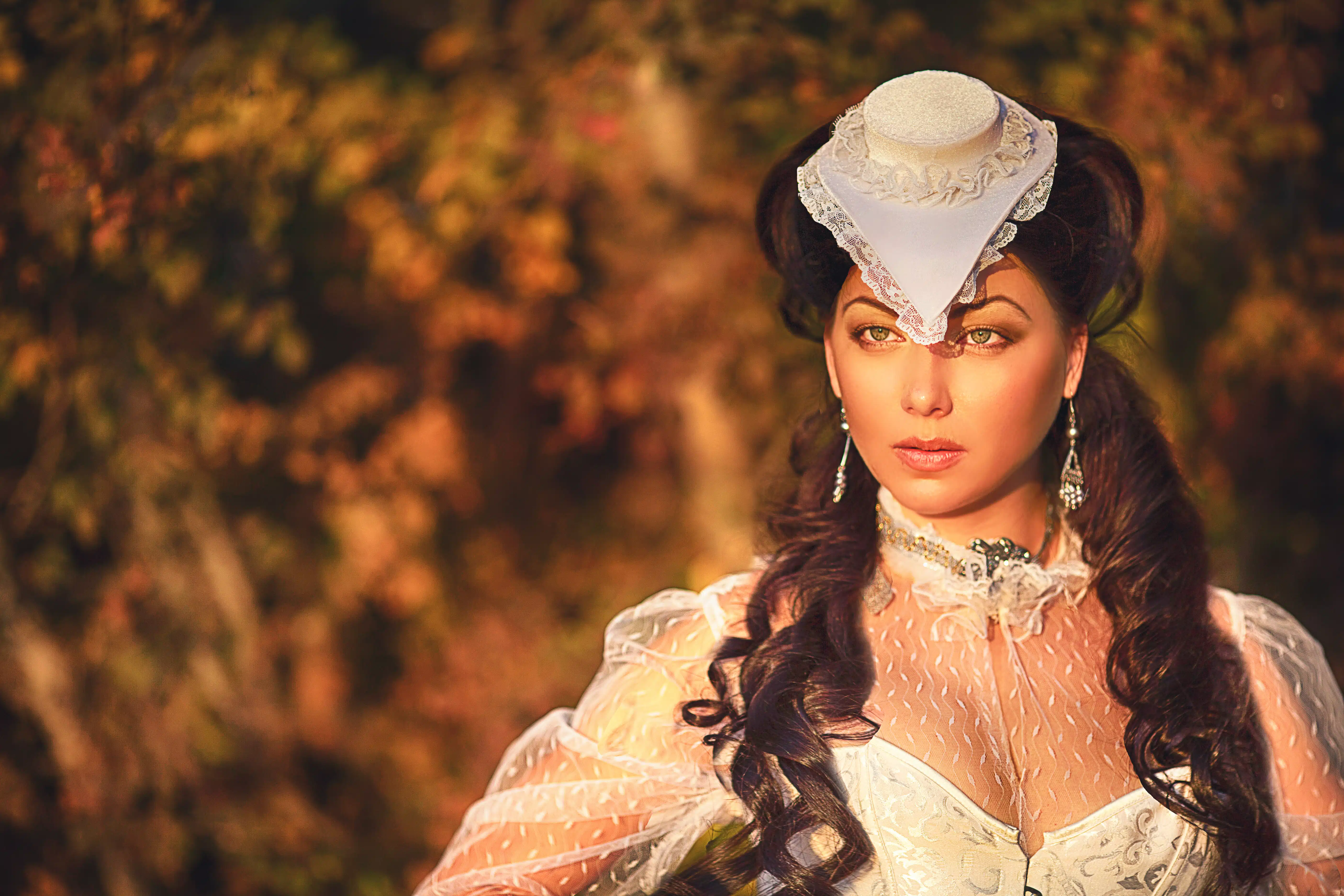Here are my favorite funny love poems categorized:
- Funny love poems
- Humorous poems about relationships
- Funny love poems to make her laugh
- Funny flirty poems
So if want the best funny love poems, then you’re in the right place.
Keep reading!
- 85 Deep Short Soulmate Poems
- 167 Swooning Famous Poems About Love
- 127 Electrifying Poems About Desire
- 133 Sensual Poems About Kisses
- 61 Everlasting Poems About Soulmates
- 67 Rapturous Poems About Deep Love
- 105 Romantic Love Poems
- 101 Sensational Famous Love Poems

Funny Love Poems
Discover a collection of the best funny love poems that will tickle your funny bone and warm your heart.
This compilation features a range of funny and flirty poems that capture the playful and humorous side of love.
Find all these delightful poems in one place here and experience the joy of love and laughter.
Let’s jump right in!
My #1 Favorite Funny Love Poem

“Woman” by Anonymous
When Eve brought woe to all mankind
Old Adam called her wo-man;
But when she wooed with love so kind,
He then pronounced her woo-man.
But now, with folly and with pride,
Their husbands’ pockets trimming,
The women are so full of whims
That men pronounce them wimmen!
Funny Love Poems

“The Compliment” by Eugene Field
Arrayed in snow-white pants and vest,
And other rainment fair to view,
I stood before my sweetheart Sue—
The charming creature I love best.
“Tell me and does my costume suit?”
I asked that apple of my eye—
And then the charmer made reply,
“Oh, yes, you do look awful cute!”
Although I frequently had heard
My sweetheart vent her pleasure so,
I must confess I did not know
The meaning of that favorite word.
But presently at window side
We stood and watched the passing throng,
And soon a donkey passed along
With ears like wings extended wide.
And gazing at the doleful brute
My sweetheart gave a merry cry—
I quote her language with a sigh—
“O Charlie, ain’t he awful cute?”
“Sorrows of Werther” by William Makepeace Thackeray
Werther had a love for Charlotte
Such as words could never utter;
Would you know how first he met her?
She was cutting bread and butter.
Charlotte was a married lady,
And a moral man was Werther,
And for all the wealth of Indies
Would do nothing for to hurt her.
So he sighed and pined and ogled,
And his passion boiled and bubbled,
Till he blew his silly brains out,
And no more was by it troubled.
Charlotte, having seen his body
Borne before her on a shutter,
Like a well-conducted person,
Went on cutting bread and butter.
“Cupid” by Ben Jonson
Beauties, have ye seen this toy,
Calléd love, a little boy
Almost naked, wanton, blind,
Cruel now, and then as kind?
If he be amongst ye, say!
He is Venus’ runaway.
He hath of marks about him plenty;
Ye shall know him among twenty;
All his body is a fire,
And his breath a flame entire,
That, being shot like lightning in,
Wounds the heart, but not the skin.
He doth bear a golden bow,
And a quiver, hanging low,
Full of arrows, that outbrave
Dian’s shafts, where, if he have
Any head more sharp than other,
With that first he strikes his mother.
Trust him not: his words, though sweet,
Seldom with his heart do meet;
All his practice is deceit,
Every gift is but a bait;
Not a kiss, but poison bears,
And most treason in his tears.
If by these ye please to know him,
Beauties, be not nice, but show him.
Though ye had a will to hide him,
Now, we hope, ye’ll not abide him,
Since ye hear his falser play,
And that he’s Venus’ runaway.

“The Sea” by Eva L. Ogden
She was rich and of high degree;
A poor and unknown artist he.
“Paint me,” she said, “a view of the sea.”
So he painted the sea as it looked the day
That Aphroditè arose from its spray;
And it broke, as she gazed on its face the while,
Into its countless-dimpled smile.
“What a poky, stupid picture!” said she:
“I don’t believe he can paint the sea!”
Then he painted a raging, tossing sea,
Storming, with fierce and sudden shock,
A towering, mighty fastness-rock;—
In its sides, above those leaping crests,
The thronging sea-birds built their nests.
“What a disagreeable daub!” said she:
“Why, it isn’t anything like the sea!”
Then he painted a stretch of hot brown sand,
With a big hotel on either hand,
And a handsome pavilion for the band;—
Not a sign of water to be seen,
Except one faint little streak of green.
“What a perfectly exquisite picture!” said she:
“It ’s the very image of the sea!”
“A Life’s Love” by Anonymous
I loved him in my dawning years—
Far years, divinely dim;
My blithest smiles, my saddest tears,
Were evermore for him.
My dreaming when the day began,
The latest thought I had,
Was still some little loving plan
To make my darling glad.
They deemed he lacked the conquering wiles,
That other children wear;
To me his face, in frowns or smiles,
Was never aught but fair.
They said that self was all his goal,
He knew no thought beyond;
To me, I know, no living soul
Was half so true and fond.
In love’s eclipse, in friendship’s dearth,
In grief and feud and bale,
My heart has learnt the sacred worth
Of one that cannot fail;
And come what must, and come what may,
Nor power, nor praise, nor pelf,
Shall lure my faith from thee to stray.
My sweet, my own—Myself.
“How Paddy Got Under Government” by Anonymous
A place under Government
Was all that Paddy wanted.
He married soon a scolding wife,
And thus his wish was granted.

“Women’s Chorus” by Aristophanes
They’re always abusing the women,
As a terrible plague to men:
They say we ’re the root of all evil,
And repeat it again and again;
Of war, and quarrels, and bloodshed,
All mischief, be what it may!
And pray, then, why do you marry us,
If we ’re all the plagues you say?
And why do you take such care of us,
And keep us so safe at home,
And are never easy a moment
If ever we chance to roam?
When you ought to be thanking heaven
That your Plague is out of the way,
You all keep fussing and fretting—
“Where is my Plague to-day?”
If a Plague peeps out of the window,
Up go the eyes of men;
If she hides, then they all keep staring
Until she looks out again.
“Echo and the Lover” by Anonymous
Lover. Echo! mysterious nymph, declare
Of what you ’re made, and what you are.
Echo. Air!
Lover. Mid airy cliffs and places high,
Sweet Echo! listening love, you lie.
Echo. You lie!
Lover. Thou dost resuscitate dead sounds,—
Hark! how my voice revives, resounds!
Echo. Zounds!
Lover. I ’ll question thee before I go,—
Come, answer me more apropos!
Echo. Poh! poh!
Lover. Tell me, fair nymph, if e’er you saw
So sweet a girl as Phœbe Shaw.
Echo. Pshaw!
Lover. Say, what will turn that frisking coney
Into the toils of matrimony?
Echo. Money!
Lover. Has Phœbe not a heavenly brow?
Is not her bosom white as snow?
Echo. Ass! No!
Lover. Her eyes! was ever such a pair?
Are the stars brighter than they are?
Echo. They are!
Lover. Echo, thou liest, but can’t deceive me.
Echo. Leave me!
Lover. But come, thou saucy, pert romancer,
Who is as fair as Phœbe? Answer!
Echo. Ann, sir.
“Echo” by John Godfrey Saxe
I asked of Echo, t’ other day,
(Whose words are few and often funny,)
What to a novice she could say
Of courtship, love, and matrimony.
Quoth Echo, plainly,—“Matter-o’-money!”
Whom should I marry?—should it be
A dashing damsel, gay and pert,
A pattern of inconstancy;
Or selfish, mercenary flirt?
Quoth Echo, sharply,—“Nary flirt!”
What if, aweary of the strife
That long has lured the dear deceiver,
She promise to amend her life,
And sin no more; can I believe her?
Quoth Echo, very promptly,—“Leave her!”
But if some maiden with a heart
On me should venture to bestow it,
Pray, should I act the wiser part
To take the treasure or forego it?
Quoth Echo, with decision,—“Go it!”
But what if, seemingly afraid
To bind her fate in Hymen’s fetter,
She vow she means to die a maid,
In answer to my loving letter?
Quoth Echo, rather coolly,—“Let her!”
What if, in spite of her disdain,
I find my heart intwined about
With Cupid’s dear delicious chain
So closely that I can’t get out?
Quoth Echo, laughingly,—“Get out!”
But if some maid with beauty blest,
As pure and fair as Heaven can make her,
Will share my labor and my rest
Till envious Death shall overtake her?
Quoth Echo (sotto voce),—“Take her!”

“Too Great a Sacrifice” by Anonymous
The maid, as by the papers doth appear,
Whom fifty thousand dollars made so dear,
To test Lothario’s passion, simply said:
“Forego the weed before we go to wed.
For smoke take flame; I ’ll be that flame’s bright fanner:
To have your Anna, give up your Havana.”
But he, when thus she brought him to the scratch,
Lit his cigar and threw away his match.
Humorous Poems About Relationships

“Forever” by Charles Stuart Calverley
Forever! ’T is a single word!
Our rude forefathers deemed it two;
Can you imagine so absurd
A view?
Forever! What abysms of woe
The word reveals, what frenzy, what
Despair! For ever (printed so)
Did not.
It looks, ah me! how trite and tame;
It fails to sadden or appall
Or solace—it is not the same
At all.
O thou to whom it first occurred
To solder the disjoined, and dower
Thy native language with a word
Of power:
We bless thee! Whether far or near
Thy dwelling, whether dark or fair
Thy kingly brow, is neither here
Nor there.
But in men’s hearts shall be thy throne,
While the great pulse of England beats:
Thou coiner of a word unknown
To Keats!
And nevermore must printer do
As men did long ago; but run
“For” into “ever,” bidding two
Be one.
Forever! passion-fraught, it throws
O’er the dim page a gloom, a glamour:
It ’s sweet, it ’s strange; and I suppose
It ’s grammar.
Forever! ’T is a single word!
And yet our fathers deemed it two:
Nor am I confident they erred;—
Are you?
“A Lovely Scene” by Anonymous
We stood at the bars as the sun went down
Beneath the hills on a summer day;
Her eyes were tender and big and brown,
Her breath as sweet as the new-mown hay.
Far from the west the faint sunshine
Glanced sparkling off her golden hair;
Those calm, deep eyes were turned toward mine,
And a look of contentment rested there.
I see her bathed in the sunlight flood,
I see her standing peacefully now,
Peacefully standing and chewing her cud,
As I rubbed her ears—that Jersey cow.
“Lines to Miss Florence Huntington” by Anonymous
Sweet maiden of Passamaquoddy,
Shall we seek for communion of souls
Where the deep Mississippi meanders,
Or the distant Saskatchewan rolls?
Ah no,—for in Maine I will find thee
A sweetly sequestrated nook
Where the far winding Skoodoowabskooksis
Conjoiins with the Skoodoowabskook.
There wander two beautiful rivers,
With many a winding and crook;
The one is the Skoodoowabskooksis,
The other—the Skoodoowabskook.
Ah, sweetest of haunts! though unmentioned
In geography, atlas, or book
How fair is the Skoodoowabskooksis,
When joining the Skoodoowabskook!
Our cot shall be close by the waters
Within that sequestrated nook—
Reflected in Skoodoowabskooksis
And mirrored in Skoodoowabskook.
You shall sleep to the music of leaflets,
By zephyrs in wantonness shook,
And dream of the Skoodoowabskooksis,
And, perhaps, of the Skoodoowabskook.
When awaked by the hens and the roosters,
Each morn, you shall joyously look
On the junction of Skoodoowabskooksis
With the soft gliding Skoodoowabskook.
Your food shall be fish from the waters,
Drawn forth on the point of a hook,
From murmuring Skoodoowabskookis,
Or wandering Skoodoowabskook!
You shall quaff the most sparkling of water,
Drawn forth from a silvery brook
Which flows to the Skoodoowabskooksis,
And then to the Skoodoowabskook!
And you shall preside at the banquet,
And I will wait on thee as cook;
And we ’ll talk of the Skoodoowabskooksis,
And sing of the Skoodoowabskook!
Let others sing loudly of Saco,
Of Quoddy, and Tattamagouche,
Of Kennebeccasis, and Quaco,
Of Merigonishe, and Buctouche,
Of Nashwaak, and Magaguadavique,
Or Memmerimammericook,—
There ’s none like the Skoodoowabskooksis,
Excepting the Skoodoowabskook!

“My Fairy” by Lewis Carroll
I have a fairy by my side
Which says I must not sleep,
When once in pain I loudly cried
It said “You must not weep”
If, full of mirth, I smile and grin,
It says “You must not laugh”
When once I wished to drink some gin
It said “You must not quaff”.
When once a meal I wished to taste
It said “You must not bite”
When to the wars I went in haste
It said “You must not fight”.
“What may I do?” at length I cried,
Tired of the painful task.
The fairy quietly replied,
And said “You must not ask”.
Moral: “You mustn’t.”
“Minguillo’s Kiss” by Anonymous
Since for kissing thee, Minguillo,
Mother’s ever scolding me,
Give me swiftly back, thou dear one,
Give the kiss I gave to thee.
Give me back the kiss—that one, now;
Let my mother scold no more;
Let us tell her all is o’er:
What was done is all undone now.
Yes, it will be wise, Minguillo,
My fond kiss to give to me;
Give me swiftly back, thou dear one,
Give the kiss I gave to thee.
Give me back the kiss, for mother
Is impatient—prithee, do!
For that one thou shalt have two:
Give me that, and take another.
Yes, then will they be contented,
Then can’t they complain of me;
Give me swiftly back, thou dear one,
Give the kiss I gave to thee.
“On Domineering Wives” by Juvenal
Now tell me, if thou canst not love a wife,
Made thine by every tie, and thine for life,
Why wed at all? Why waste the wine and cakes
The queasy-stomached guest at parting takes,
And the rich present, which the bridal right
Claims for the favors of the happy night,
The charger, where, triumphantly inscrolled,
The Dacian Hero shines in current gold?
If thou canst love, and thy besotted mind
Is so uxoriously to one inclined,
Then bow thy neck, and with submissive air
Receive the yoke thou must forever wear.
To a fond spouse a wife no mercy shows;
Though warmed with equal fires, she mocks his wos,
And triumphs in his spoils; her wayward will
Defeats his bliss, and turns his good to ill.
Naught must be given, if she opposes; naught,
If she opposes, must be sold or bought;
She tells him where to love, and where to hate;
Shuts out the ancient friend, whose beard his gate
Knew from its downy to its hoary state;
And when pimps, parasites, of all degrees,
Have power to will their fortunes as they please,
She dictates his, and impudently dares
To name his very rivals for his heirs.
“Go, crucify that slave!” “For what offense?
Who the accuser? Where the evidence?
For when the life of man is in debate,
No time can be too long, no care too great.
Hear all, weigh all with caution, I advise—”
“Thou sniveler! Is a slave a man?” she cries.
“He’s innocent!” “Be’t so; ’tis my command,
My will. Let that, sir, for a reason stand.”
Thus the virago triumphs, thus she reigns.
Anon she sickens of her first domains,
And seeks for new; husband on husband takes,
Till of her bridal veil one rent she makes.
Again she tires, again for change she burns,
And to the bed she lately left returns,
While the fresh garlands and unfaded boughs
Yet deck the portal of her wondering spouse.
“EIGHT HUSBANDS TO HERSELF SHE GAVE”—
A rare inscription for her grave!

“Where Are You Going, My Pretty Maid?” by Unknown
“Where are you going, my pretty maid?”
“I’m going a-milking, sir,” she said.
“May I go with you, my pretty maid?”
“You’re very welcome, sir,” she said.
“What is your father, my pretty maid?”
“My father’s a farmer, sir,” she said.
“Would you like to marry, my pretty maid?”
“Yes, thank you, I would, sir,” she said.
“What is your fortune, my pretty maid?”
“My face is my fortune, sir,” she said.
“Then I can’t marry you, my pretty maid.”
“Nobody axed you, sir!” she said.
“A Lover’s Chronicle” by Abraham Cowley
Margarita first possessed,
If I remember well, my breast—
Margarita first of all;
But awhile the wanton maid
With my restless heart had play’d,
Martha took the flying ball.
Martha soon did it resign
To the beauteous Catharine.
Beauteous Catharine gave place
(Though loth and angry she to part
With the possession of my heart)
To Eliza’s conquering face.
Eliza till this hour might reign,
Had she not evil counsels ta’en;
Fundamental laws she broke,
And still new favourites she chose,
Till up in arms my passions rose,
And cast away her yoke.
Mary, then, and gentle Anne,
Both to reign at once began;
Alternately they sway’d;
And sometimes Mary was the fair,
And sometimes Anne the crown did wear,
And sometimes both I obey’d.
Another Mary then arose,
And did rigorous laws impose;
A mighty tyrant she!
Long, alas! should I have been
Under that iron-sceptred queen,
Had not Rebecca set me free.
When fair Rebecca set me free,
’Twas then a golden time with me:
But soon those pleasures fled;
For the gracious princess died,
In her youth and beauty’s pride,
And Judith reignéd in her stead.
One month, three days, and half an hour,
Judith held the sovereign power:
Wondrous beautiful her face!
But so weak and small her wit,
That she to govern was unfit,
And so Susanna took her place.
But when Isabella came,
Arm’d with a resistless flame,
And th’ artillery of her eye;
Whilst she proudly march’d about,
Greater conquests to find out,
She beat out Susan by-the-by.
But in her place I then obey’d
Black-eyed Bess, her viceroy-maid;
To whom ensued a vacancy:
Thousand worse passions then possess’d
The interregnum of my breast;
Save me from such an anarchy!
Gentle Henrietta then
And a third Mary, next began;
Then Joan, and Jane, and Audria;
And then a pretty Thomasine,
And then another Catharine,
And then a long et-cetera.
But should I now to you relate
The strength and riches of their state;
The powder, patches, and the pins,
The ribbons, jewels, and the rings,
The lace, the paint, and warlike things,
That make up all their magazines;
If I should tell the politic arts
To take and keep men’s hearts;
The letters, embassies, and spies,
The frowns, and smiles, and flatteries,
The quarrels, tears, and perjuries,
(Numberless, nameless mysteries!)
And all the little lime-twigs laid
By Machiavel, the waiting-maid,
I more voluminous should grow
(Chiefly if I, like them, should tell
All change of weathers that befell)
Than Holinshed or Stow.
But I will briefer with them be,
Since few of them were long with me.
An higher and a nobler strain
My present Empress doth claim,
Heleonora, first o’ th’ name;
Whom God grant her long to reign!
“The Collegian to His Bride” by Anonymous
Charmer, on a given straight line,
And which we will call B C,
Meeting at a common point A,
Draw the lines A C, A B.
But, my sweetest, so arrange it
That they ’re equal, all the three;
Then you ’ll find that, in the sequel,
All their angles, too are equal.
Equal angles, so to term them,
Each one opposite its brother!
Equal joys and equal sorrows,
Equal hopes, ’t were sin to smother,
Equal,—O, divine ecstatics,—
Based on Hutton’s mathematics!

“Love in a Cottage” by Nathaniel Parker Willis
They may talk of love in a cottage,
And bowers of trellised vine—
Of nature bewitchingly simple,
And milkmaids half-divine;
They may talk of the pleasure of sleeping
In the shade of a spreading tree,
And a walk in the fields at morning,
By the side of a footstep free!
But give me a sly flirtation
By the light of a chandelier—
With music to play in the pauses,
And nobody very near;
Or a seat on a silken sofa,
With a glass of pure old wine,
And mama too blind to discover
The small white hand in mine.
Your love in a cottage is hungry,
Your vine is a nest for flies—
Your milkmaid shocks the Graces,
And simplicity talks of pies!
You lie down to your shady slumber
And wake with a bug in your ear,
And your damsel that walks in the morning
Is shod like a mountaineer.
True love is at home on a carpet,
And mightily likes his ease—
And true love has an eye for a dinner,
And starves beneath shady trees.
His wing is the fan of a lady,
His foot’s an invisible thing,
And his arrow is tipp’d with a jewel
And shot from a silver string.
“On the Brink” by Charles Stuart Calverley
I watched her as she stooped to pluck
A wild flower in her hair to twine;
And wished that it had been my luck
To call her mine;
Anon I heard her rate with mad,
Mad words her babe within its cot,
And felt particularly glad
That it had not.
I knew (such subtle brains have men!)
That she was uttering what she shouldn’t;
And thought that I would chide, and then
I thought I wouldn’t.
Few could have gazed upon that face,
Those pouting coral lips, and chided:
A Rhadamanthus, in my place,
Had done as I did.
For wrath with which our bosoms glow
Is chained there oft by Beauty’s spell;
And, more than that, I did not know
The widow well.
So the harsh phrase passed unreproved:
Still mute—(O brothers, was it sin?)—
I drank unutterably moved,
Her beauty in.
And to myself I murmured low,
As on her upturned face and dress
The moonlight fell, “Would she say No,—
By chance, or Yes?”
She stood so calm, so like a ghost,
Betwixt me and that magic moon,
That I already was almost
A finished coon.
But when she caught adroitly up
And soothed with smiles her little daughter;
And gave it, if I ’m right, a sup
Of barley-water;
And, crooning still the strange, sweet lore
Which only mothers’ tongues can utter,
Snowed with deft hand the sugar o’er
Its bread-and-butter;
And kissed it clingingly (ah, why
Don’t women do these things in private?)—
I felt that if I lost her, I
Should not survive it.
And from my mouth the words nigh flew,—
The past, the future, I forgat ’em,—
“Oh, if you ’d kiss me as you do
That thankless atom!”
But this thought came ere yet I spake,
And froze the sentence on my lips:
“They err who marry wives that make
Those little slips.”
It came like some familiar rhyme,
Some copy to my boyhood set;
And that ’s perhaps the reason I ’m
Unmarried yet.
Would she have owned how pleased she was,
And told her love with widow’s pride?
I never found out that, because
I never tried.
Be kind to babes and beasts and birds,
Hearts may be hard though lips are coral;
And angry words are angry words:
And that ’s the moral.
“Love’s Seasons” by Frank Dempster Sherman
’Twas spring when I first found it out;
’Twas autumn when I told it;
The gloomy winter made me doubt,
And summer scarce could hold it.
“She loves,” the mating robins sang
In sweet, delicious trebles,
And through the brooks the echo rang
In music o’er the pebbles.
The fresh air, filled with fragrant scent
Of blossoms, softly hinted
The selfsame song; where’er I went
I found the message printed
On bud and leaf, on earth and sky,
Through sun and rain it glistened,
And though I never reasoned why,
I always read or listened.
The summer dawned, and still the birds
Sang in their tree-top glory,
And something seemed to make their words
A sequel to my story:
“You love,” they twittered in the trees,
Whene’er the light wind stirred them.
Distracting words! on every breeze
They fluttered, and I heard them.
At last the mellow autumn came,
And all the leaves were turning,
The fields and forests were aflame
In golden sunlight burning;
The parting birds sang out again
A sentimental message:
“Go tell her,” whispered they, and then
I thought ’twas love’s first presage.
Oh timid-hearted twenty-four,
To faint and lose your courage,
Or half-reluctantly implore
A pretty girl at her age!
For when I stammered what they’d sung,
And all their secrets told her,
She said the birds were right, and hung
Her head upon my shoulder.
Funny Love Poems To Make Her Laugh

“A Poe-em of Passion” by Charles Fletcher Lummis
It was many and many a year ago,
On an island near the sea,
That a maiden lived whom you mightn’t know
By the name of Cannibalee;
And this maiden she lived with no other thought
Than a passionate fondness for me.
I was a child, and she was a child—
Tho’ her tastes were adult Feejee—
But she loved with a love that was more than love,
My yearning Cannibalee,
With a love that could take me roast or fried
Or raw, as the case might be.
And that is the reason that long ago,
In that island near the sea,
I had to turn the tables and eat
My ardent Cannibalee—
Not really because I was fond of her,
But to check her fondness for me.
But the stars never rise but I think of the size
Of my hot-potted Cannibalee,
And the moon never stares but it brings me nightmares
Of my spare-rib Cannibalee;
And all the night-tide she is restless inside,
Is my still indigestible dinner-belle bride,
In her pallid tomb, which is Me,
In her solemn sepulcher, Me.
“The Owl And The Pussy-Cat” by Edward Lear
The Owl and the Pussy-Cat went to sea
In a beautiful pea-green boat:
They took some honey, and plenty of money
Wrapped up in a five-pound note.
The Owl looked up to the stars above,
And sang to a small guitar,
“O lovely Pussy, O Pussy, my love,
What a beautiful Pussy you are,
You are,
You are!
What a beautiful Pussy you are!
Pussy said to the Owl, “You elegant fowl,
How charmingly sweet you sing!
Oh! let us be married; too long we have tarried:
But what shall we do for a ring?”
They sailed away, for a year and a day,
To the land where the bong-tree grows;
And there in a wood a Piggy-wig stood,
With a ring at the end of his nose,
His nose,
His nose,
With a ring at the end of his nose.
“Dear Pig, are you willing to sell for one shilling
Your ring?” Said the Piggy, “I will.”
So they took it away, and were married next day
By the Turkey who lives on the hill.
They dined on mince and slices of quince,
Which they ate with a runcible spoon;
And hand in hand, on the edge of the sand,
They danced by the light of the moon,
The moon,
The moon,
They danced by the light of the moon.
“The Scholar’s Wife” by John Dryden
To a deep scholar said his wife:
“Would that I were a book, my life!
On me, then, you would sometimes look.
But I should wish to be the book
That you would mostly wish to see.
Then say, what volume should I be?”
“An Almanack,” said he, “my dear;
You know we change them every year.”

“A Drinking Song” by George Etherege
The pleasures of Love and the joys of good Wine,
To perfect our happiness, wisely we join!
We, to Beauty, all day.
Give the sovereign sway;
And her favourite Nymphs devoutly obey!
At the Plays, we are constantly making our Court;
And when they are ended, we follow the sport
To the Mall, and the Park;
Where we love till ’tis dark!
Then, sparkling Champagne
Puts an end to their reign.
It quickly recovers
Poor languishing Lovers!
Makes us frolic and gay; and drowns all our sorrow!
But, alas! we relapse again on the morrow!
Let every man stand
With his Glass in his hand;
And briskly discharge, at the word of command!
Here’s a Health to all those,
Whom, to-night, we depose!
Wine and Beauty, by turns, great souls should inspire!
Present all together! and now, boys, give fire!
“A Valentine” by Lewis Carroll
And cannot pleasures, while they last,
Be actual unless, when past,
They leave us shuddering and aghast,
With anguish smarting?
And cannot friends be firm and fast,
And yet bear parting?
And must I then, at Friendship’s call,
Calmly resign the little all
(Trifling, I grant, it is and small)
I have of gladness,
And lend my being to the thrall
Of gloom and sadness?
And think you that I should be dumb,
And full DOLORUM OMNIUM,
Excepting when YOU choose to come
And share my dinner?
At other times be sour and glum
And daily thinner?
Must he then only live to weep,
Who’d prove his friendship true and deep
By day a lonely shadow creep,
At night-time languish,
Oft raising in his broken sleep
The moan of anguish?
The lover, if for certain days
His fair one be denied his gaze,
Sinks not in grief and wild amaze,
But, wiser wooer,
He spends the time in writing lays,
And posts them to her.
And if the verse flow free and fast,
Till even the poet is aghast,
A touching Valentine at last
The post shall carry,
When thirteen days are gone and past
Of February.
Farewell, dear friend, and when we meet,
In desert waste or crowded street,
Perhaps before this week shall fleet,
Perhaps to-morrow.
I trust to find YOUR heart the seat
Of wasting sorrow.
“The Little Maid and the Lawyer” by John Godfrey Saxe
I
They say, little maid, quoth Lawyer Brown,
I’m the cleverest man in all the town.
Heigh-ho! says she,
What’s that to me?
But they say, little maid, quoth Lawyer Brown,
You’re the prettiest girl in all the town.
Says she, If they do,
What’s that to you?
II
They say, little maid, quoth Lawyer Brown,
I’m the richest man in all the town.
Heigh-ho! says she,
What’s that to me?
But they say, little maid, quoth Lawyer Brown,
You ought to be dressed in a finer gown.
Says she, If they do,
What’s that to you?
III
They say, little maid, quoth Lawyer Brown,
That Johnny Hodge is an awkward clown.
Heigh-ho! says she,
What’s that to me?
But they say, little maid, the lawyer said,
That you and Johnny are going to wed.
Says she, If we do,
What’s that to you?

“The Ideal Husband to His Wife” by Sam Walter Foss
We’ve lived for forty years, dear wife,
And walked together side by side,
And you to-day are just as dear
As when you were my bride.
I’ve tried to make life glad for you,
One long, sweet honeymoon of joy,
A dream of marital content,
Without the least alloy.
I’ve smoothed all boulders from our path,
That we in peace might toil along,
By always hastening to admit
That I was right and you were wrong.
No mad diversity of creed
Has ever sundered me from thee;
For I permit you evermore
To borrow your ideas of me.
And thus it is, through weal or wo,
Our love forevermore endures;
For I permit that you should take
My views and creeds, and make them yours.
And thus I let you have my way,
And thus in peace we toil along,
For I am willing to admit
That I am right and you are wrong.
And when our matrimonial skiff
Strikes snags in love’s meandering stream,
I lift our shallop from the rocks,
And float as in a placid dream.
And well I know our marriage bliss
While life shall last will never cease,
For I shall always let thee do,
In generous love, just what I please.
Peace comes, and discord flies away;
Love’s bright day follows hatred’s night;
For I am ready to admit
That you are wrong and I am right.
“The Constant Lover” by Sir John Suckling
Out upon it! I have lov’d
Three whole days together,
And am like to love three more,
If it prove fine weather.
Time shall moult away his wings,
Ere he shall discover
In the whole wide world again
Such a constant lover.
But the spite on’t is, no praise
Is due at all to me;
Love with me had made no stays
Had it any been but she.
Had it any been but she,
And that very face,
There had been at least, ere this,
A dozen dozen in her place!
“L’Envoi” by E. B. Reed in “The Yale Record”
Go, pretty Rose, and to her tell
All I would say, could I but see
The slender form I know so well,
The roguish eyes that laughed at me.
And when your fragrance fills the room,
Tell her of all I hope and fear;
With every breath of sweet perfume,
Whisper my greetings in her ear.
But, Roses, stay—there is one thing
You must not mention (don’t forget,
For it might be embarrassing),
And that is, you’re not paid for yet!

“Mine Everywhere” from Vuk’s Collection
“Come with me, thou charming maiden;
Be my love, and come with me.”
“Wherefore play with words so foolish?
That can never, never be.
I had rather in the tavern
Bear the brimming cup, than ever,
Ever promise to be thine.”
“I am the young tavern-keeper,
So thou wilt indeed be mine.”
“Wherefore play with words so foolish?
No such fate will e’er befall.
In the coffee-house I’d rather
Serve, enveloped in my shawl,
Rather than be thine at all.”
“But I am the coffee-boiler,
Thee, my maiden, will I call.”
“Wherefore play with words so foolish?
That can never, never be.
Rather o’er the field I’ll wander,
Changed into a quail, than ever,
Ever give myself to thee.”
“But I am a cunning sportsman,
And thou shalt belong to me.”
“Wherefore play with words so foolish?
That can never, never be.
Rather to a fish I’d change me,
Diving deep beneath the sea,
Rather than belong to thee.”
“But I am the finest network,
Which into the sea I’ll cast.
Mine thou art, and mine thou shalt be—
Yes, thou must be mine at last!
Be it here, or be it there,
Mine thou must be everywhere!”
“Two of a Kind” by H. W. Banks, in “The Williams’ Argo”
Softly the evening breezes
Blew through the leaves overhead,
And the fireflies flashed like diamonds,
The robins had gone to bed.
And there, in the gathering twilight,
Swinging listlessly to and fro,
With one little foot just moving
To make the hammock go,
She seemed to my loving spirit
Like some mystical maiden of old,
With the eyes shining soft in the starlight,
And her tresses like beaten gold.
And I sat at her feet adoring,
Not daring a word to say,
Lest the beautiful charm should be broken,
And the vision should vanish away.
But I longed to be sitting beside her,
And pour in her listening ear
The words which burned in my bosom,
And her whispered answer to hear.
“Fair maid, I beseech thee, tell me,
Is there room enough for two
To sit and swing in the hammock,
Should I come and swing with you?”
In her eyes burned a softer radiance,
And gently her head inclined,
As she murmured, “Oh, yes, thrice plenty,
But only for two of a kind.”
“Whims of the Amorous” by Heinrich Heine
Upon the hedge the beetle sits sadly,
He has fallen in love with a ladyfly madly.
“Oh, fly of my soul, ’tis thou alone
Art the wife I have chosen to be my own!
“Oh, marry me, and be not cold,
For I have a belly of glistening gold.
“My back is a mass of glory and show;
There rubies glitter, there emeralds glow.”
“Oh, would that I were a fool just now!
I’d never marry a beetle, I vow.
“I care not for emeralds, rubies, or gold;
I know that no happiness riches enfold.
“’Tis toward the ideal my thought soars high,
For I am in truth a haughty fly.”
The beetle flew off, with a heart like to break;
The fly went away, a bath to take.
“Oh, what has become of my maid, the bee,
That she, when I’m washing, may wait on me;
“That she may stroke my soft hair outside?
For I am now a beetle’s bride.
“In truth, a splendid party I’ll give,
For handsomer beetle never did live.
“His back is a mass of glory and show;
There rubies glitter, there emeralds glow.
“His belly is golden, and noble each feature;
With envy will burst full many a creature.
“Make haste, Miss Bee, and dress my hair;
And lace my waist; use perfumes rare;
“With attar of roses rub me o’er,
And lavender oil on my feet then pour—
“That I may not stink, or nastily smell,
When I in my bridegroom’s arms shall dwell.
“Already are flitting the dragonflies blue,
As maids of honor to wait on me too.
“Into my bridal garland they’ll twine
The blossoms white of the orange so fine.
“Full many musicians are asked to the place,
And singers as well, of the grasshopper race.
“The bittern, drone, hornet, and gadfly all come,
To blow on the trumpet and beat the drum.
“They’re all to strike up for the glad wedding-feast.
The gay-wingèd guests, from greatest to least,
“Are coming in families dapper and brisk,
The commoner insects among them frisk.
“The grasshoppers, wasps, and the aunts and the cousins
Are coming, while trumpets are blowing by dozens.
“The pastor, the mole, in black, dignified state,
Has also arrived, and the hour grows late.
“The bells are all sounding ding-dong, ding-a-dong—
But where’s my dear bridegroom ling’ring so long?”
Ding-dong, ding-a-dong, sound the bells all the day,
The bridegroom, however, has flown far away.
The bells are all sounding ding-dong, ding-a-dong—
“But where’s my dear bridegroom ling’ring so long?”
The bridegroom has meanwhile taken his seat
On a distant dunghill, enjoying the heat.
Seven years there sits he, until his forgotten
Poor bride has long been dead and rotten.

“Eve’s Daughter” by Edward Rowland Sill
I waited in the little sunny room:
The cool breeze waved the window-lace at play,
The white rose on the porch was all in bloom,
And out upon the bay
I watched the wheeling sea-birds go and come.
“Such an old friend—she would not make me stay
While she bound up her hair.” I turned, and lo,
Danæ in her shower! and fit to slay
All a man’s hoarded prudence at a blow:
Gold hair, that streamed away
As round some nymph a sunlit fountain’s flow.
“She would not make me wait!”—but well I know
She took a good half-hour to loose and lay
Those locks in dazzling disarrangement so!
“Don’t Drive Me Away” by Louisa May Alcott
‘Don’t drive me away,
But hear what I say:
Bad men want the gold;
They will steal it to-night,
And you must take flight;
So be quiet and busy and bold.’
‘Slip away with me,
And you will see
What a wise little thing am I;
For the road I show
No man can know,
Since it’s up in the pathless sky.
“My Rival” by Rudyard Kipling
I go to concert, party, ball —
What profit is in these?
I sit alone against the wall
And strive to look at ease.
The incense that is mine by right
They burn before her shrine;
And that’s because I’m seventeen
And She is forty-nine.
I cannot check my girlish blush,
My color comes and goes;
I redden to my finger-tips,
And sometimes to my nose.
But She is white where white should be,
And red where red should shine.
The blush that flies at seventeen
Is fixed at forty-nine.
I wish I had Her constant cheek;
I wish that I could sing
All sorts of funny little songs,
Not quite the proper thing.
I’m very gauche and very shy,
Her jokes aren’t in my line;
And, worst of all, I’m seventeen
While She is forty-nine.
The young men come, the young men go
Each pink and white and neat,
She’s older than their mothers, but
They grovel at Her feet.
They walk beside Her ‘rickshaw wheels —
None ever walk by mine;
And that’s because I’m seventeen
And She is foty-nine.
She rides with half a dozen men,
(She calls them “boys” and “mashers”)
I trot along the Mall alone;
My prettiest frocks and sashes
Don’t help to fill my programme-card,
And vainly I repine
From ten to two A.M. Ah me!
Would I were forty-nine!
She calls me “darling,” “pet,” and “dear,”
And “sweet retiring maid.”
I’m always at the back, I know,
She puts me in the shade.
She introduces me to men,
“Cast” lovers, I opine,
For sixty takes to seventeen,
Nineteen to foty-nine.
But even She must older grow
And end Her dancing days,
She can’t go on forever so
At concerts, balls and plays.
One ray of priceless hope I see
Before my footsteps shine;
Just think, that She’ll be eighty-one
When I am forty-nine.

“Cures for Love” from The Greek Anthology
Hunger, perhaps, may cure your love,
Or time your passion greatly alter;
If both should unsuccessful prove,
I strongly recommend a halter.
“The Romance of the Carpet” by Robert Jones Burdette
Basking in peace in the warm spring sun,
South Hill smiled upon Burlington.
The breath of May! and the day was fair,
And the bright motes danced in the balmy air.
And the sunlight gleamed where the restless breeze
Kissed the fragrant blooms on the apple-trees.
His beardless cheek with a smile was spanned,
As he stood with a carriage-whip in his hand.
And he laughed as he doffed his bobtail coat,
And the echoing folds of the carpet smote.
And she smiled as she leaned on her busy mop,
And said she’d tell him when to stop.
So he pounded away till the dinner-bell
Gave him a little breathing spell.
But he sighed when the kitchen clock struck one,
And she said the carpet wasn’t done.
But he lovingly put in his biggest licks,
And he pounded like mad till the clock struck six.
And she said, in a dubious kind of way,
That she guessed he could finish it up next day.
Then all that day, and the next day, too,
That fuzz from the dirtless carpet flew.
And she’d give it a look at eventide,
And say, “Now beat on the other side.”
And the new days came as the old days went,
And the landlord came for his regular rent.
And the neighbors laughed at the tireless broom,
And his face was shadowed with clouds of gloom.
Till at last, one cheerless winter day,
He kicked at the carpet and slid away—
Over the fence and down the street,
Speeding away with footsteps fleet.
And never again the morning sun
Smiled on him beating his carpet-drum.
And South Hill often said with a yawn,
“Where’s the carpet-martyr gone?”
Years twice twenty had come and passed,
And the carpet swayed in the autumn blast.
For never yet, since that bright spring-time,
Had it ever been taken down from the line.
Over the fence a gray-haired man
Cautiously clim, clome, clem, clum, clamb.
He found him a stick in the old woodpile,
And he gathered it up with a sad, grim smile.
A flush passed over his face forlorn
As he gazed at the carpet, tattered and torn.
And he hit it a most resounding thwack,
Till the startled air gave his echoes back.
And out of the window a white face leaned,
And a palsied hand the pale face screened.
She knew his face; she gasped, and sighed,
“A little more on the other side.”
Right down on the ground his stick he throwed,
And he shivered, and said, “Well, I am blowed!”
And he turned away, with a heart full sore,
And he never was seen not more, not more.
Funny Flirty Poems

“The Ring” from Vuk’s Collection
The streamlet rippled through the mead, beneath the maple-tree;
There came a maid down to that stream—a lovely maid was she;
From the white walls of old Belgrade the maid came smilingly.
Young Mirko saw, and offered her a golden fruit, and said:
“Oh, take this apple, damsel fair, and be mine own sweet maid!”
She took the apple, flung it back, and said, in angry tone:
“Neither thine apple, sir, nor thee! Presumptuous youth, begone!”
The streamlet rippled through the mead, beneath the maple-tree;
There came a maid down to that stream—a lovely maid was she;
From the white walls of old Belgrade the maid came smilingly.
Young Mirko saw, and offered her a golden brooch, and said:
“Oh, take this brooch, thou damsel fair, and be mine own sweet maid!”
She took the brooch, and flung it back, and said, in peevish tone:
“I’ll neither have thee nor thy brooch! Presumptuous youth, begone!”
The streamlet rippled through the mead, beneath the maple-tree;
There came a maid down to that stream—a lovely maid was she;
From the white walls of old Belgrade the maid came smilingly.
Young Mirko saw, and offered her a golden ring, and said:
“Oh, take this ring, thou damsel fair, and be mine own sweet maid!”
She took the ring, and slipped it on, and said, in sprightliest tone:
“I’ll have thee, and thy golden ring, and be thy faithful one!”
“Love Dislikes Nothing” by Robert Herrick
Whatsoever thing I see,
Rich or poor although it be;
’Tis a mistress unto me.
Be my maiden fair or brown,
Does she smile or does she frown,
Still I write a sweetheart down.
Be she rough or smooth of skin;
When I touch, I then begin
For to let affection in.
Be she bald, or does she wear
Locks incurl’d of other hair,
I shall find enchantment there.
Be she whole, or be she rent,
So my fancy be content,
She’s to me most excellent.
Be she fat, or be she lean,
Be she sluttish, be she clean,
I’m a man for ev’ry scene.
“To Chloe” by Horace (Quintus Horatius Flaccus)
Nay, hear me, dearest Chloe, pray!
You shun me like a timid fawn,
That seeks its mother all the day
By forest brake and upland lawn,
Of every passing breeze afraid,
And leaf that twitters in the glade.
Let but the wind with sudden rush
The whispers of the wood awake,
Or lizard green disturb the hush,
Quick-darting through the grassy brake,
The foolish frightened thing will start,
With trembling knees and beating heart.
But I am neither lion fell,
Nor tiger grim to work you woe;
I love you, sweet one, much too well,
Then cling not to your mother so,
But to a lover’s tender arms
Confide your ripe and rosy charms.

“The Pale Lover” by Sir John Suckling
Why so pale and wan, fond Lover?
Prithee, why so pale?
Will, when looking well can’t move her,
Looking ill prevail?
Prithee, why so pale?
Why so dull and mute, young sinner?
Prithee, why so mute?
Will, when speaking well can’t win her,
Saying nothing do’t?
Prithee, why so mute?
Quit, quit, for shame! This will not move;
This cannot take her;
If of herself she will not love,
Nothing can make her—
The devil take her!
“Song for a Girl” by John Dryden
Young I am, and yet unskill’d
How to make a Lover yield:
How to keep, or how to gain,
When to love; and when to feign.
Take me, take me, some of you,
While I yet am young and true;
E’re I can my soul disguise;
Heave my breasts, and roll my eyes.
Stay not till I learn the way,
How to lie, and to betray:
He that has me first, is blest,
For I may deceive the rest.
Cou’d I find a blooming youth,
Full of love, and full of truth,
Brisk, and of a jaunty mean
I should long to be fifteen.
“Heaven First Created Woman to Be Kind” by Anonymous
Heaven first created Woman to be Kind,
Both to be beloved, and for to Love;
If you contradict what Heaven has designed,
You’ll be contemned by all the Powers above:
Then no more dispute me, for I am rashly bent,
To subject your Beauty
To kind Nature’s Duty,
Let me then salute you by Consent.
Arguments and fair Intreats did I use,
But with her Consent could not prevail;
She the Blessing modestly would still refuse,
Seeming for to slight my amorous Tale:
Sometimes she would cry Sir, prithee, Dear be good,
Oh, Sir, pray, Sir, why, Sir?
Pray now, nay now, fye, Sir,
I would sooner die, Sir, than be rude.
I began to treat her then another way,
Modestly I melted with a Kiss;
She then blushing looked like the rising Day,
Fitting for me to attempt the Bliss;
I gave her a fall, Sir, she began to tear,
Crying she would call, Sir,
As loud as she could bawl, Sir,
But it prov’d as false, Sir, as she’s Fair.

“A Poem of Privacy” from Wine, Women and Song (John Addington Symonds, Translator)
When a young man, passion-laden,
In a chamber meets a maiden,
Then felicitous communion,
By love’s strain between the twain,
Grows from forth their union;
For the game, it hath no name,
Of lips, arms, and hidden charms.
“There was a Young Lady of Lucca” by Edward Lear
There was a Young Lady of Lucca,
Whose lovers completely forsook her;
She ran up a tree,
And said, ‘Fiddle-de-dee!’
Which embarassed the people of Lucca.
“Her Mission” by Jean Blewett
She is so winsome and so wise
She sways me at her will,
And oft the question will arise,
What mission does she fill?
O then I say with pride untold,
And love beyond degree,
This woman with the heart of gold,
She just keeps house for me –
For me,
She just keeps house for me!
A full content dwells on her face,
She’s quite in love with life,
And for a title wears with grace
The sweet old-fashioned “wife.”
Our children climb upon her knee,
And nestle on her breast,
And ah! her mission seems to me
The grandest and the best.
O then I say with pride untold,
And love beyond degree,
This woman with the heart of gold,
She just keeps house for me –
For me,
She just keeps house for me!
